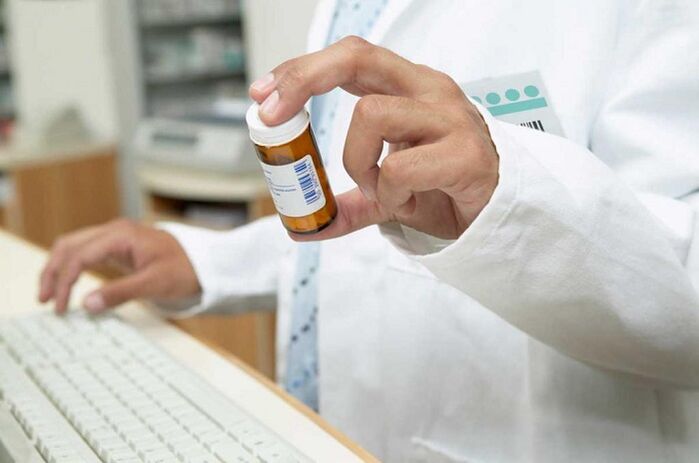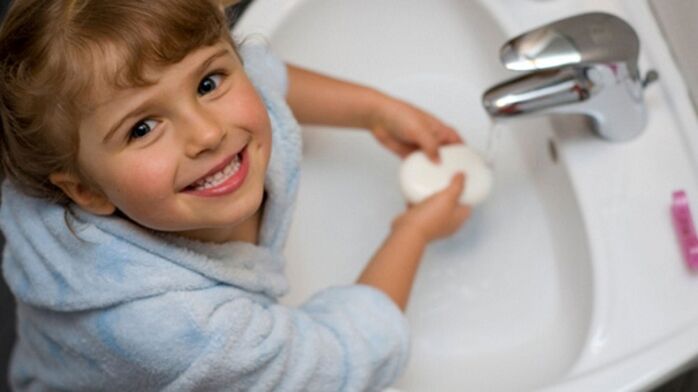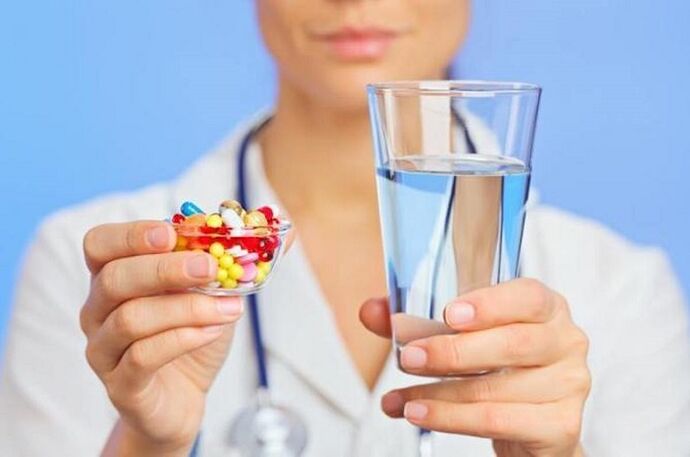Helminthiases are a group of parasitic diseases characterized by a high degree of infection. Helminth eggs are highly resistant, they can remain on various surfaces of the environment for a long time, and at the same time maintain their vitality. It's sad that helminth eggs surround us everywhere: in soil, water, dirt, dust, food, and pet hair. However, it is quite easy to prevent infection, for this it is only necessary to follow a few preventive measures: personal hygiene rules and general sanitary rules. After all, preventing worms is the best way to protect yourself from helminth invasion.
Forms of infection with helminthiasis.
You can become infected with worms in the following ways:
- by eating contaminated meat and fish;
- when eating unwashed vegetables and herbs, fruits and berries;
- through dirty hands;
- some parasites that live in water can penetrate the skin;
- through infected insects, which are intermediate hosts for larvae;
- through infected feces;
- through pets infected with parasites.
Prevention of worms in adults.
The prevention of worms in humans is not limited only to compliance with the rules of personal hygiene, pharmacological preparations are also used for prophylactic purposes. Synthetic anthelmintics are prescribed only by a specialist, depending on the age, weight and general health of the patient. You should not self-medicate and take such drugs on your own, since parasites are of different types and live not only in the intestines, but also in other organs. Also, do not forget that with the wrong dose of the drug or uncontrolled intake of it, you can greatly harm the body.
First, if the wrong dose is applied, the parasites do not die, but instead migrate from the gastrointestinal tract to other organs.
Second, anthelmintic drugs are very toxic, they can cause severe poisoning in the body and liver damage.
Third, most anthelmintic drugs affect only adults and their larvae and eggs remain unharmed.

The prevention of worms is a set of measures that are not limited to a single pill or simply to the rules of personal hygiene. It is just that in some cases it is enough to observe only personal hygiene, while in others these measures are few, they are supplemented with pharmacological agents. Only the doctor determines in which cases the usual preventive measures are sufficient and in which they should be supplemented with pills.
Compliance with the rules of personal hygiene.
However, everyone is familiar with the well-known adage that it is easier to prevent disease than to cure. Before the disease makes itself felt, it is better to observe the basic rules of personal hygiene. In addition, preventive actions are quite simple and very effective. Protective measures against parasitic infection:
- wash your hands frequently with soap and water, especially after using the bathroom and before eating;
- frequent change of underwear and bedding;
- high-quality heat treatment of meat and fish;
- refusal to eat raw meat and fish products, as well as undercooked or undercooked steak;
- thoroughly washing vegetables, herbs, fruits and berries under running water;
- use smoked, salted or dried fish with extreme caution,
- after any contact with pets, hands should be thoroughly washed and kitty litter should be cleaned with protective gloves; it is also necessary to treat the cat's tray and bowls with a disinfectant;
- iron underwear and bedding after washing;
- do not use water from unknown sources for food and do not swim in unknown bodies of water;
- cut your nails, since helminth eggs can remain in the nail hole even after you have washed your hands well;
- regularly perform pet deworming;
- wear protective gloves when cleaning the premises, as well as when working in the garden.
How to protect children from parasites.
Young children are potential victims of helminths, as babies cannot carry out personal hygiene on their own. Also, at this age they get to know the world around them, they try everything. Therefore, there is a high probability of developing a parasitic invasion in a child. In this case, the child's parents take preventive measures. However, it is impossible to keep track of babies, at this age they are quite active and can become infected with helminthiasis in a moment.

For the prevention of worms in children, it is necessary:
- wash your child's hands often, from an early age, to accustom him to the basics of personal hygiene;
- ironing the baby's underwear and bedding;
- disinfect your toys and wash soft toys in hot water;
- do not allow pets to sleep in the same bed as your child;
- teach your child to wash their hands after every contact with pets;
- subjecting the food for the child to a high-quality heat treatment;
- wash vegetables and fruits well under running water;
- keep the child's room clean and tidy;
- treat the place where the child is crawling with a disinfectant (if she is under 1 year old).
If an infection has suddenly occurred, only a doctor should prescribe methods of treating helminthiasis. You should not self-medicate, because your child's health and life are at stake.
Anthelmintic drugs are strong toxic agents. It is necessary to treat the child with them very carefully and under the strict supervision of the attending physician. Only the doctor prescribes the type and dosage of the drug, as each drug has different age indications.
It is possible to give a child anti-worm medication only when a parasitic invasion has been accurately diagnosed. Otherwise, you should not expose the child to the toxic effects of anthelmintic drugs. Parents should coordinate all their actions only with the attending physician.
How to take pills for worms
All medicines for worms are divided into:
- drugs with a narrow spectrum of action;
- Broad spectrum drugs.
The first drugs affect certain types of helminths and only destroy them. The second type of drug affects most parasites of various types (round, flat, and tapeworms). Also, some drugs affect the respiratory system of the helminth, others provoke muscle paralysis in them, others stop the process of glucose absorption, and still others block the metabolic processes in the worm's body. All these actions contribute to the death of parasites and their elimination from the body.

Experts believe that prevention of helminthiasis should be carried out twice a year. One in early spring and the second in late autumn, before the onset of the cold period. Medications need to be used at the same time when the patient experiences symptoms caused by parasitic invasion. As a rule, these are:
- stomach ache;
- nausea and vomiting;
- itching in the anus;
- weakness and general malaise;
- insomnia;
- weightloss.
Anthelmintic therapy is carried out no more than 3-5 days. With a single dose of medicine for worms, not all parasites can die, and the rest are able to migrate from the intestines to other organs and even have time to lay eggs. After two weeks, it is necessary to repeat the intake of anthelmintic drugs to destroy the newly appeared helminths.
Antihelmite therapy includes three stages, lasting approximately two weeks:
- The first week prepares for the expulsion of parasites from the body. For these purposes, they maintain a light diet, take medications that improve the outflow of bile and the functioning of the gastrointestinal tract.
- The second stage consists of the direct administration of anthelmintics. The course of treatment is 5 days.
- The third stage is the removal of dead parasites from the body. For this, laxatives and enemas are used. The last stage is very important, as the bodies of the helminths can begin to decompose, causing severe poisoning in humans.
Anthelmintic drugs
In the pharmacological market, tablets for worms are very well presented, moreover, in different price categories. For the prevention of worms, the following pharmacological agents are used:

Based on levamisole
Medicines help improve the body's defenses by producing the necessary antibodies in the blood. In addition, the drugs inhibit the oxidation process of glucose (glycolysis), thus causing the death of the parasites. The drugs are effective for various parasitic invasions. Side effects are seen in the form of nausea, vomiting, and abdominal pain.
Based on mebendazole
The most effective in the treatment of ascariasis, enterobiasis and whipworms. The drugs interrupt the metabolic processes in the body of the parasite, thus causing its death. The funds are highly toxic, as they can accumulate in the body. For this reason, you should not use them on your own without a prescription as it can cause serious harm to the body. Contraindicated in pregnancy and lactation, as well as in the presence of chronic pathologies.
Based on albendazole
The drugs effectively kill both helminths and protozoa, making them suitable for use in mixed parasitic infections. It should be used with caution in people with liver disease. The dose and frequency of use is selected individually in each specific case, as it depends on the type of parasite and the degree of infection. The use of these drugs for prophylaxis is a fairly reliable protection against various types of parasites.






































